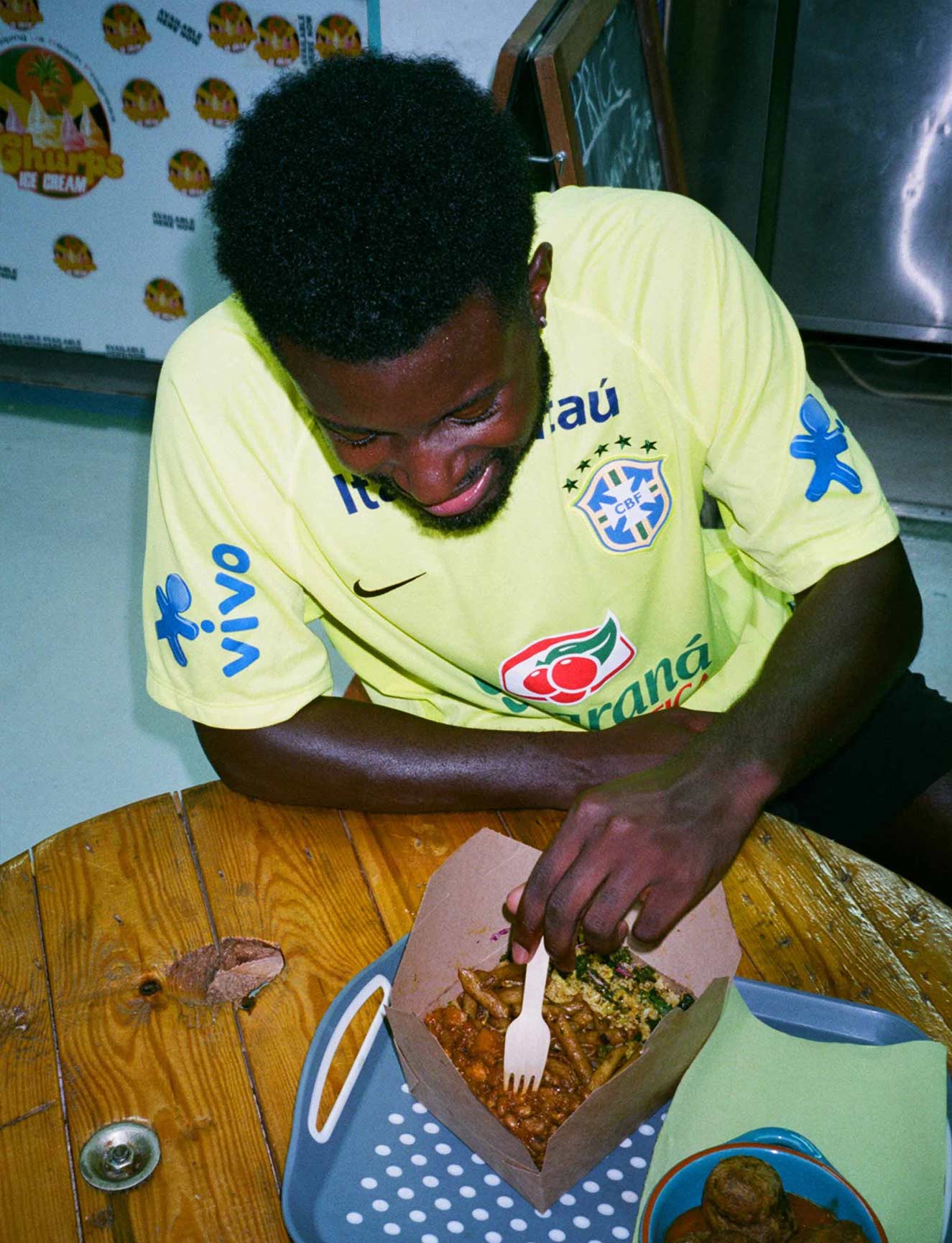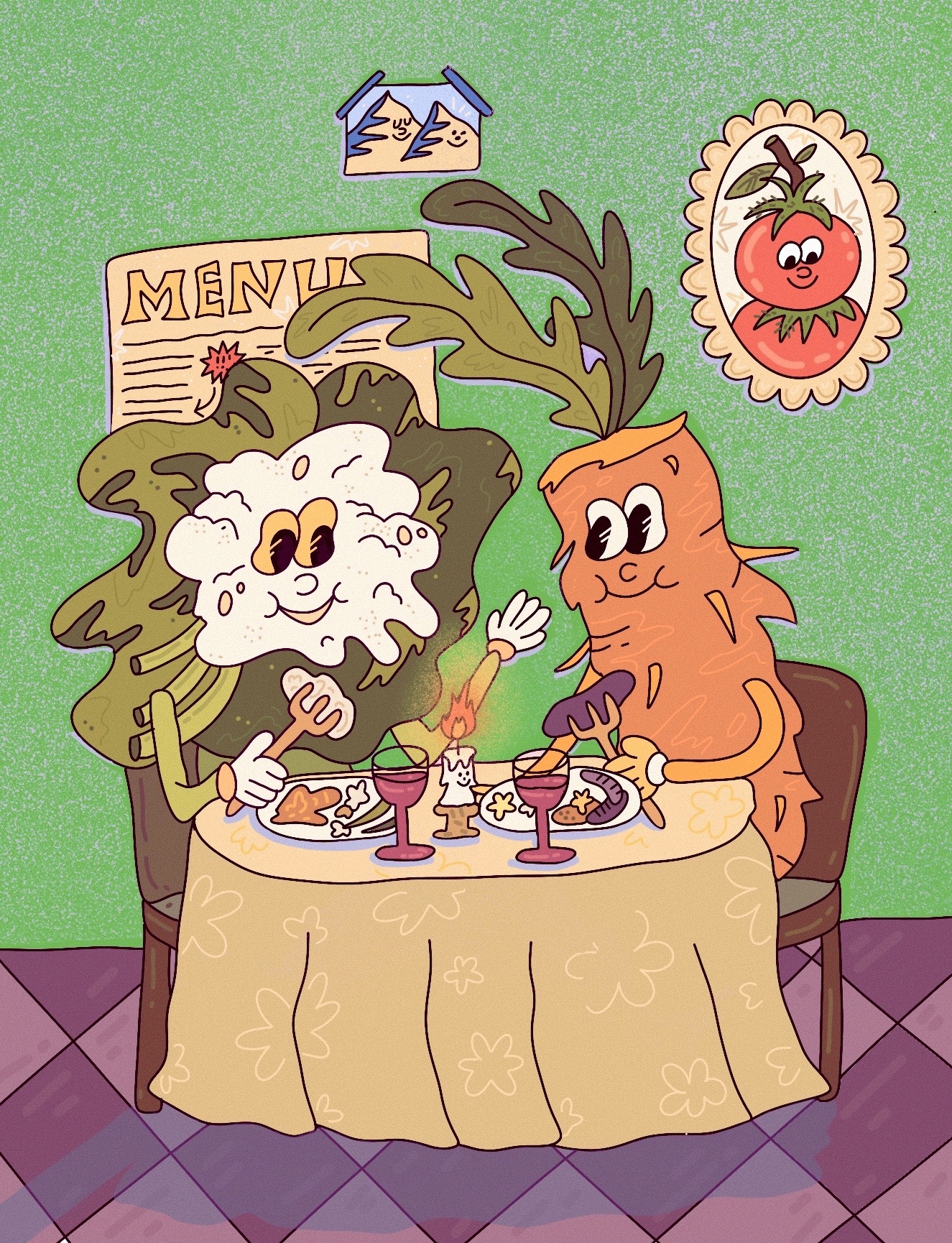In 2017 the activist and food writer Riaz published Belly Full: Caribbean Food in the UK. Part guide, part history, it profiled over 60 eateries across the entirety of the UK, as well as tracing the story of the Caribbean and diaspora through its dishes. This past July also saw him bring out Community Comfort, a digital collection of recipes from over 100 cooks, with all profits going to the Majonzi COVID-19 Bereavement Fund to support communities disproportionately affected by Covid-19.
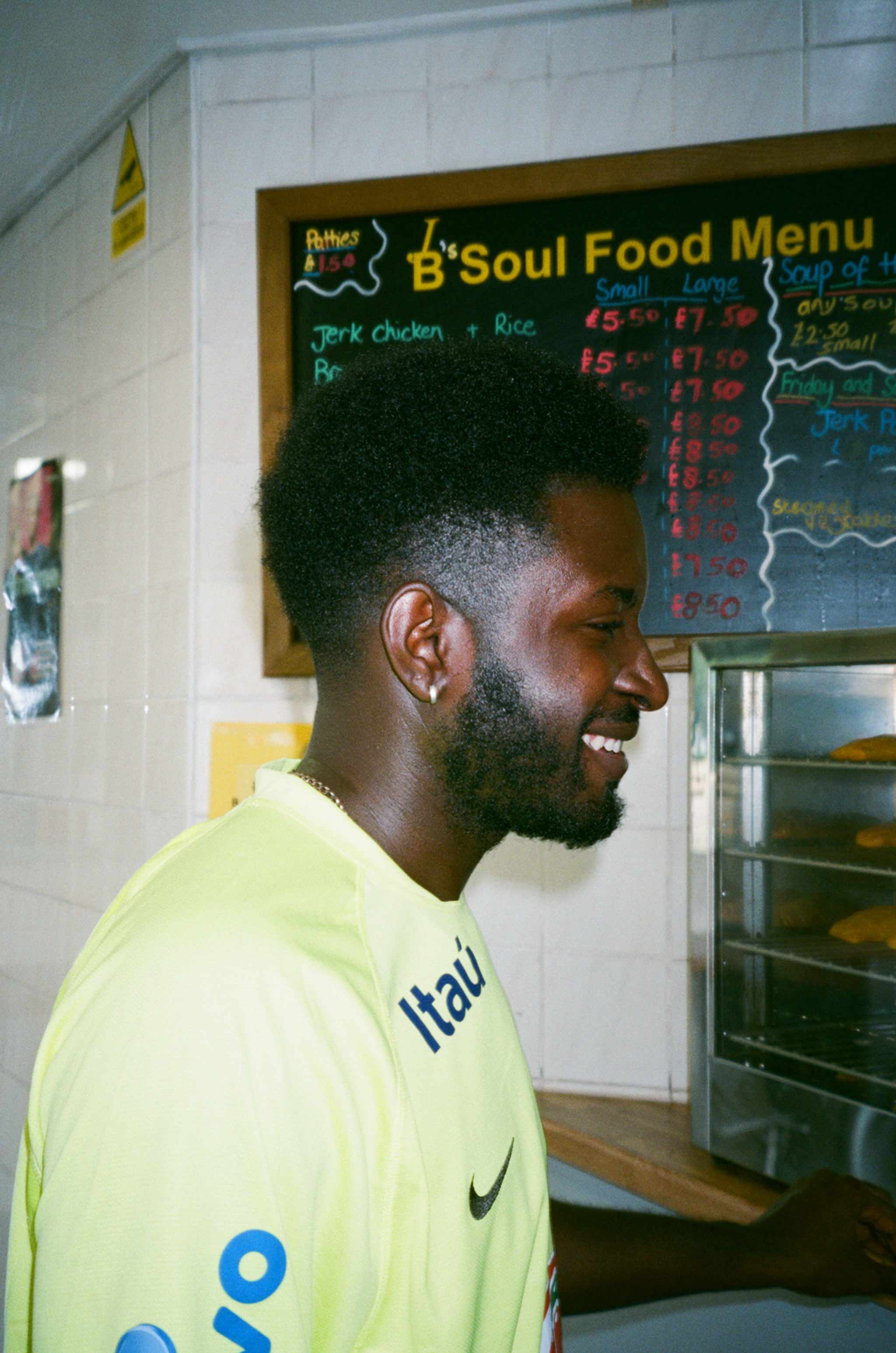
His work has also featured in the likes of Vice and Mother Country: Real Stories of the Windrush Children, an anthology of essays exploring the experiences of the children and grandchildren of the Windrush generation.
What does Carnival mean to you?
Carnival is everything. A space to completely let loose, free from persecution. A space where you’ll see your best friends and family, people you haven’t seen in years and people you’ve never met before; each person’s presence is amazing. More importantly, as Black people in the UK we are used to being underground, upstairs or in the back, whether it’s in clubs, bars or whatever music or public venue will dutifully allow us. At Carnival, for two days a year our bodies, faces and skin are no longer confined and hidden, but out in the open.
Carnival is everything
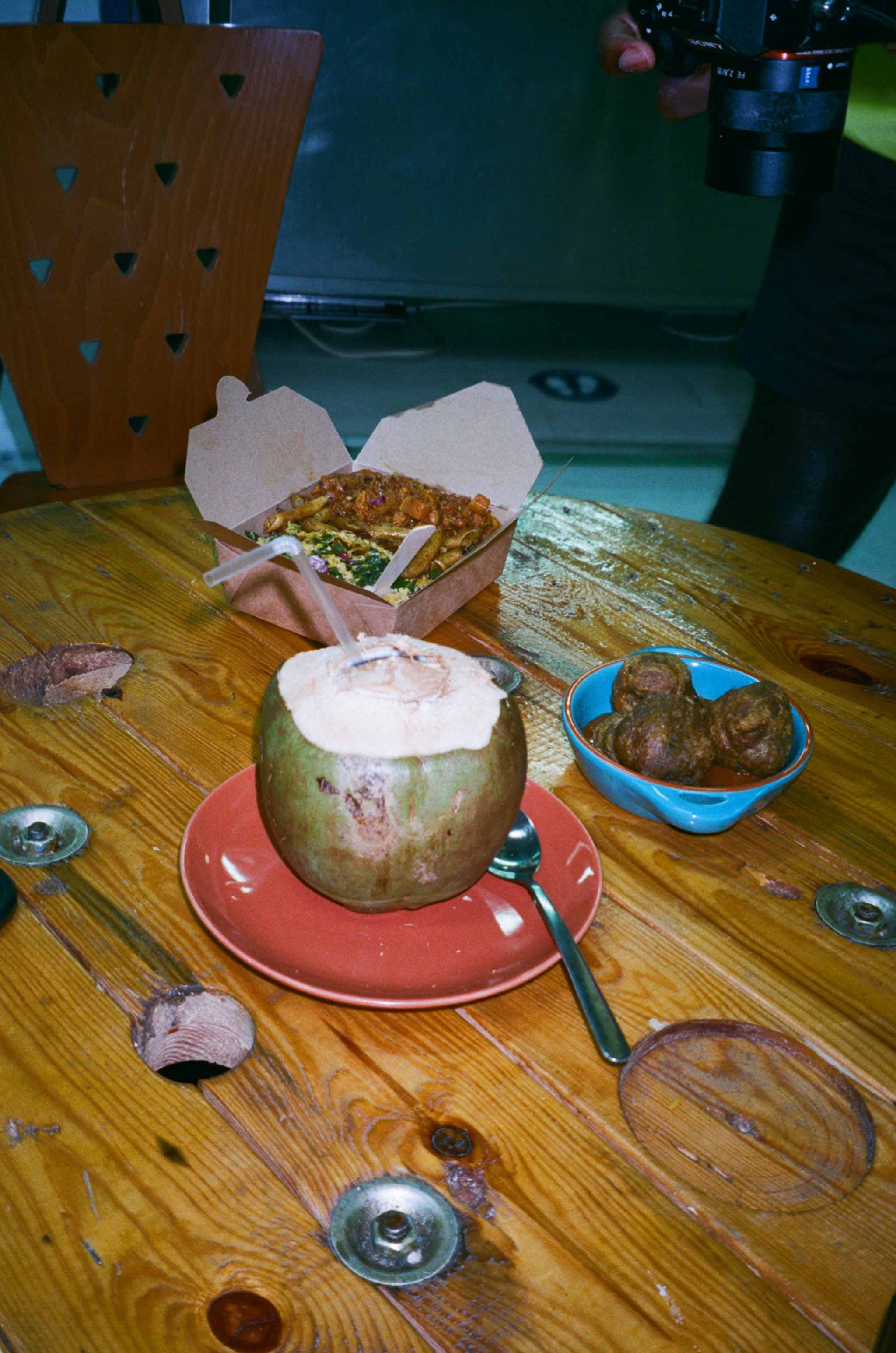
How impactful has Carnival been for your career and exploration of British Caribbean food?
Less so food, more so culture in general. While my family is from a variety of islands, the culture on display is mainly Jamaican. At Carnival, be it through the Jouvert or the Soca marches, I get to connect with Trini culture, Guyanese culture and see how similar but wildly vivid they all are. At the same time, I also get to hear elements of my heritage that aren’t always at the fore at home, such as Rastafari dub culture (which I’m now a huge fan of). Carnival has been key in giving me a visual education to the Caribbean, one that I wouldn’t have been able to otherwise have, until years down the line when I was fortunate to travel to the region myself.
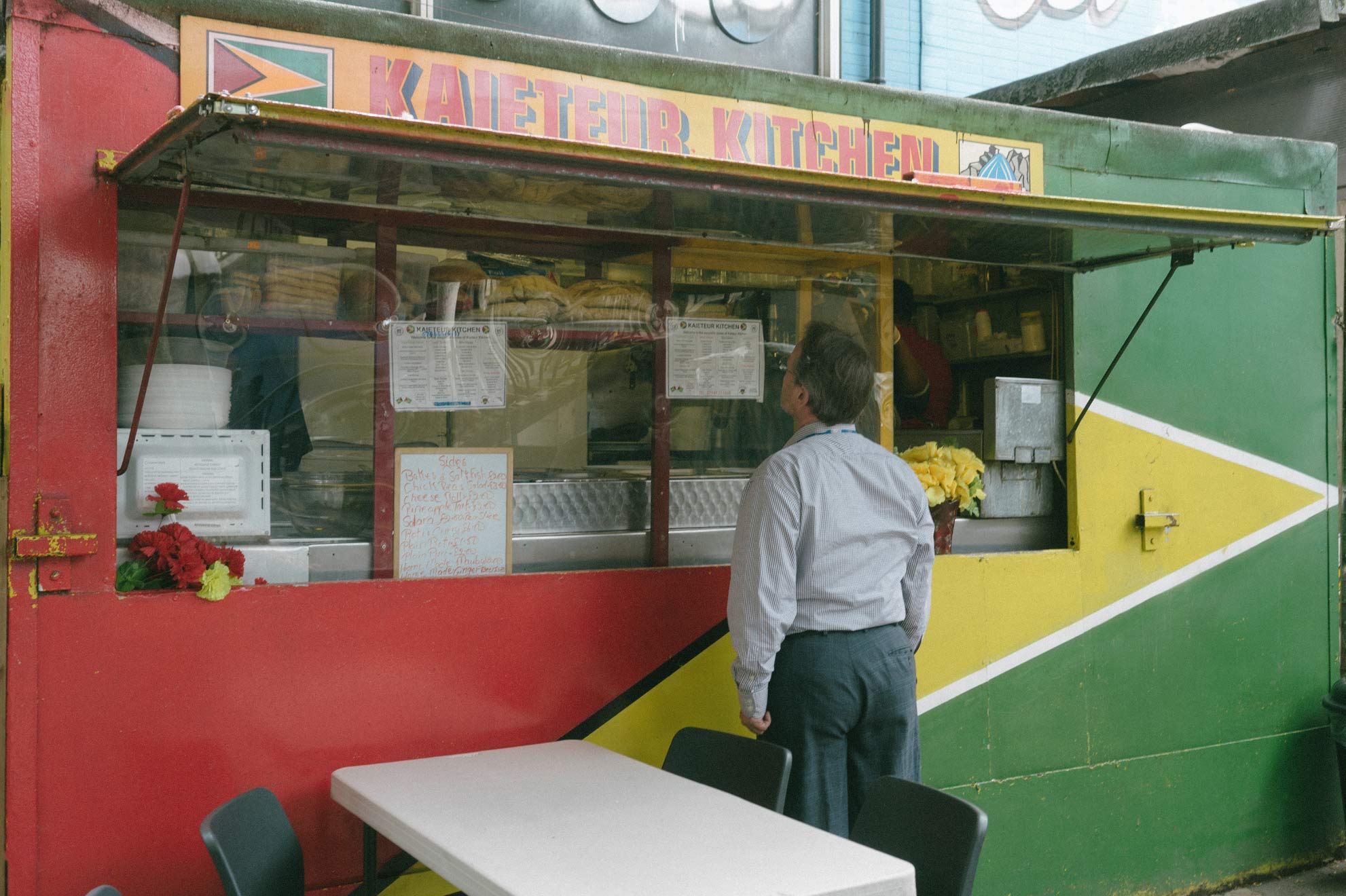
As a food writer and activist you do a lot of work to highlight the importance of food within British Caribbean culture, why do you think food is so important to the Caribbean diaspora?
For us migrants, or children of migrants in a new land, food is one of the ways that many of our communities unite and sustain. Be that at home, for special occasions or in the growing number of food shops and public culinary spaces. Food is one of the ways we can connect, and then also display our culture to a wider community. In a place where our identity is continually tested, these benchmarks of our identity, something that we can call our own, is paramount. This is why it’s such a big issue when people from outside the community begin to colonise and gentrify our food.
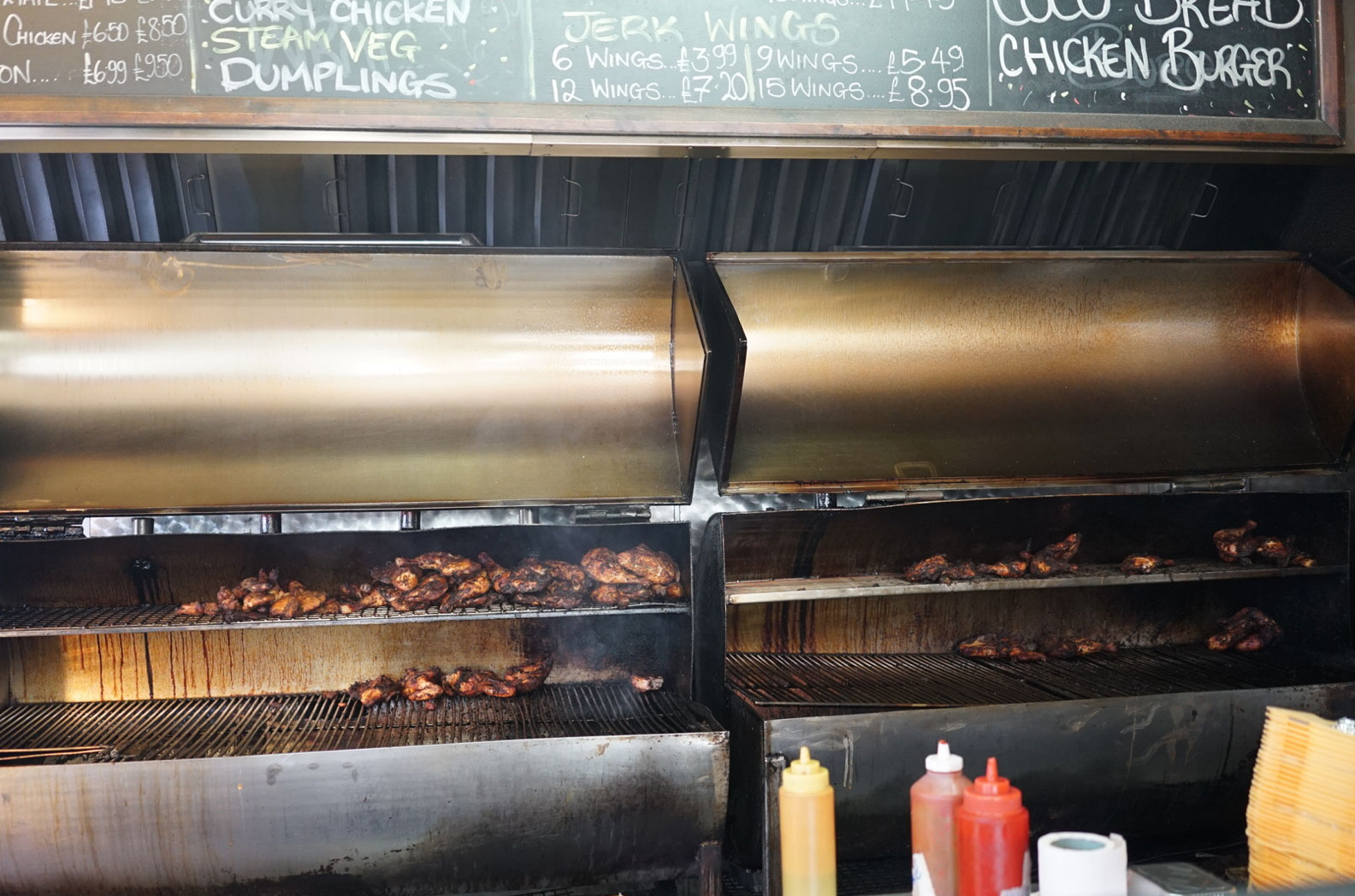
What does a typical experience at Notting Hill Carnival look like for you?
For Sunday it’s an early Morning rise. At 11am or so we meet at Ladbroke Grove for the Wotless march, an East Caribbean inspired Masquerade march known for its wild paint dashing. Ten minutes into the march everyone will be covered in paint, maniacally dancing with anything that moves whilst simultaneously trying to avoid water guns, buckets, balloons or hands carrying a kaleidoscopic array of paint. Wotless usually look after me on the Soundsystem bus so it’s curry goat or jerk chicken with rice and peas and a water to recharge halfway through to see me through the day. I actually like to beat the crowd so I’ll count my small victories of the day and cut to the nearest station to head home. Then it’s bath, nap and whatever party is on that night if I can manage.
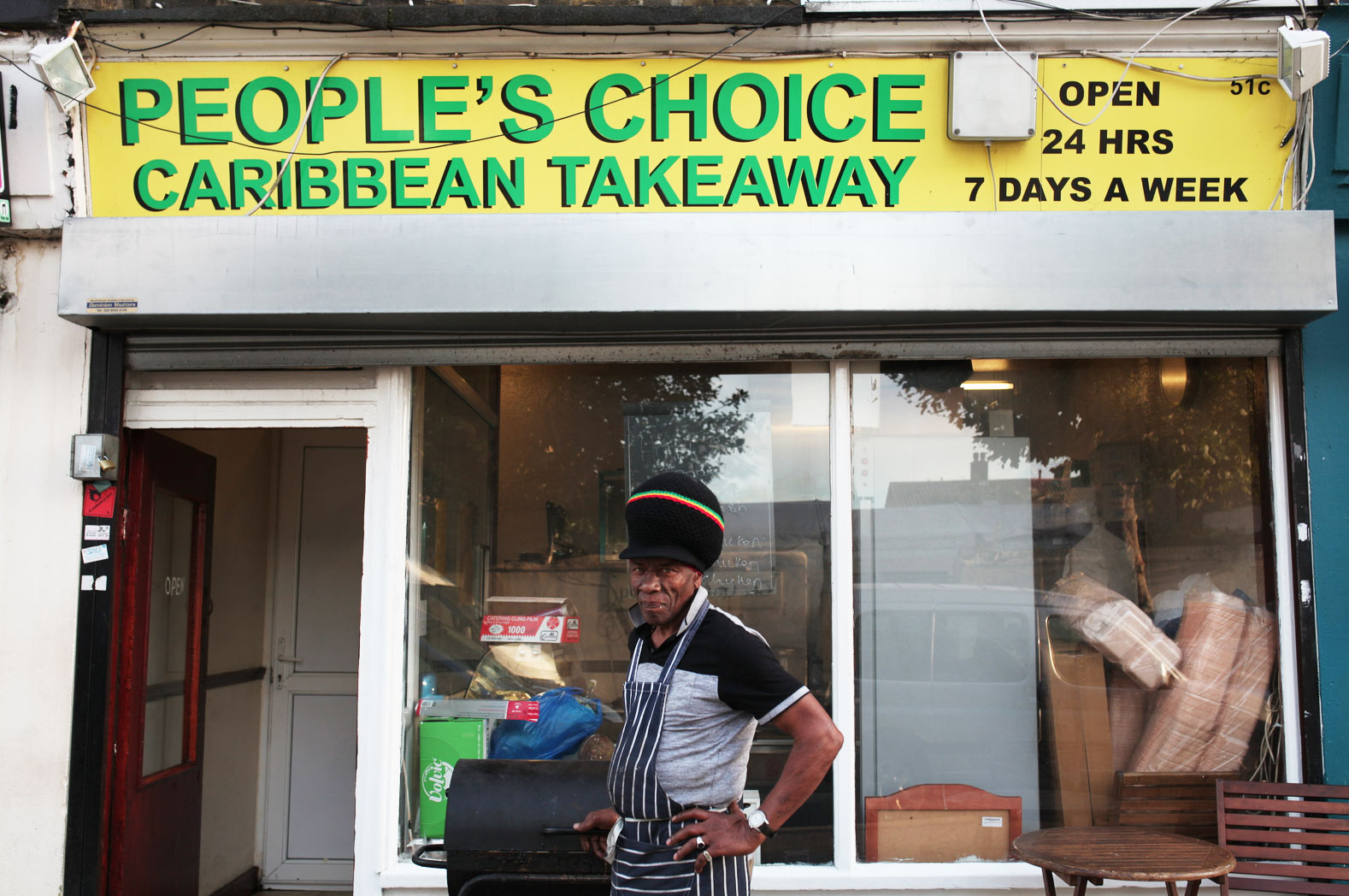
Food is one of the ways our communities unite and sustain
Though Monday is known for being more hectic than Sunday it’s usually more chill for me. For me Monday is about catching a few grooves, having some rum punch and seeing some good people, rather than going all out. I’ll head to Westbourne park station and hang around there, and go to Channel One for the majority of the day, only leaving a few times to catch some more modern sounds on the nearby streets. Again, before the crowds I’ll head back to Westbourne Park and head home. The mistake people make is trying to see everyone they know, trying to make numerous texts and calls to link up, going to dozens of sounds, getting way too licked. Pick your small patch and chill.
Is there any one dish that reminds you of Notting Hill Carnival?
When I lived in South London our tradition was to survive carnival, then by any means possible make it back to New Cross where we’d link at our nearby local fave Smokey Jerk for some mixed jerk meat, rice and peas and hot scorpion pepper sauce.
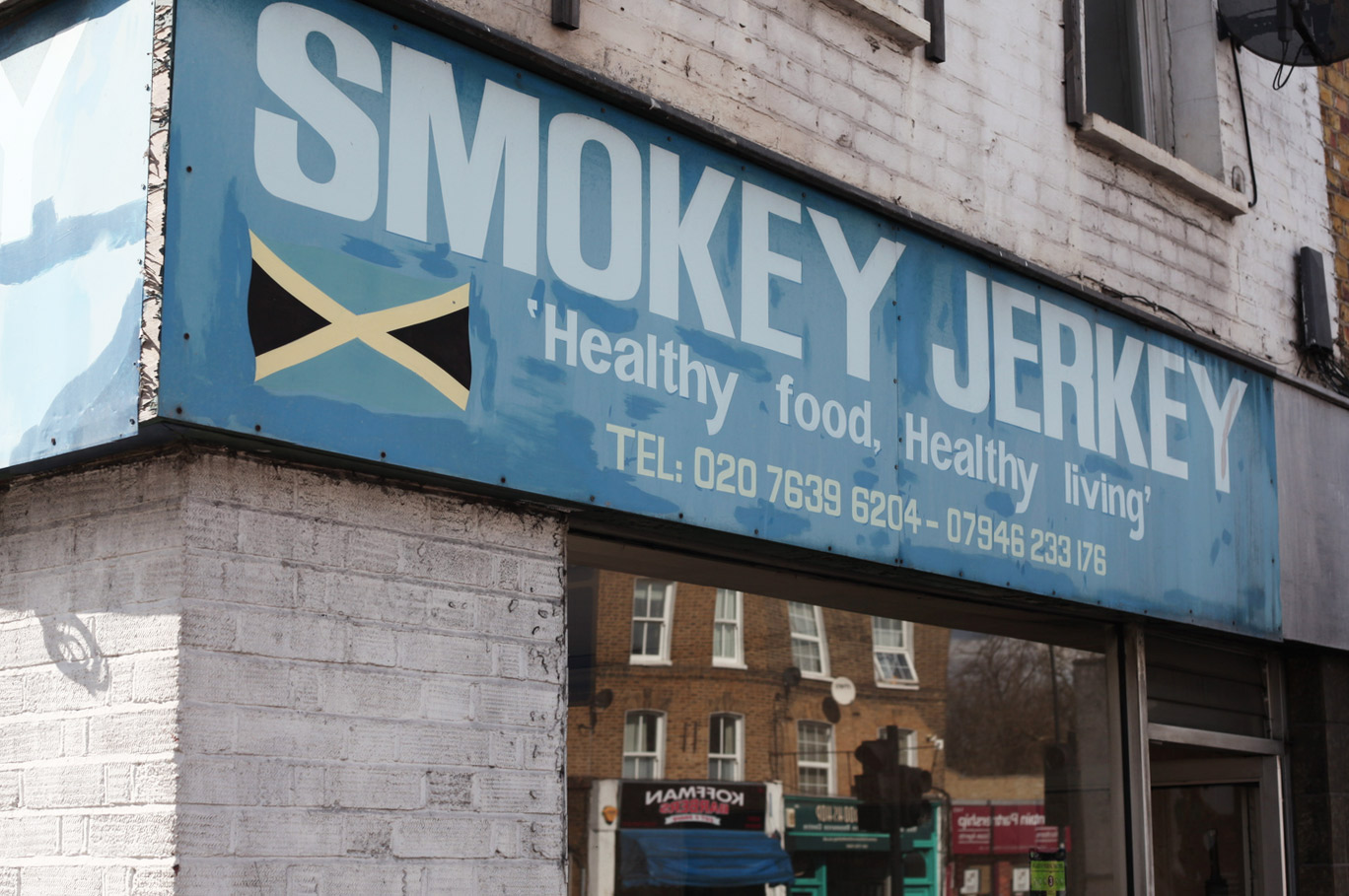
What would your top five eateries be that could give people a taste of the Notting Hill Carnival food experience?
Smokey Jerkey (Jamaican) New Cross, South East London: Legendary lewisham jerk spot. Unlike most Caribbean takeouts, Smokey Jerkey doesnt have a huge list of sides and extras, meaning they just focus on their Jerk. Mixed meats accompanied with a choice of rice and urban myth scorpion hot pepper sauce. Go overboard at your own peril; it looks like ketchup but I can assure you it isn’t.
Kaiteur Kitchen (Guyanese) Elephant & Castle, South/Central London: Situated in the middle of Elephant & Castle, this Guyanese spot makes a nice departure from the usual Jamaican food of London. Honing in on the country’s Asian heritage, noodle and rice dishes and savoury baked snacks are all on offer. The star of the show, however, is the home-cooked roti flatbread filled with anything of your choice.
Ochi (Jamaican) Shepherd’s Bush, West London: The home away from home for many celebs performing at the nearby venues for a taste of home. Ochi represents all corners of the Caribbean with amazing takes on favourites like red pea soup, curry goat, oxtail and roti.
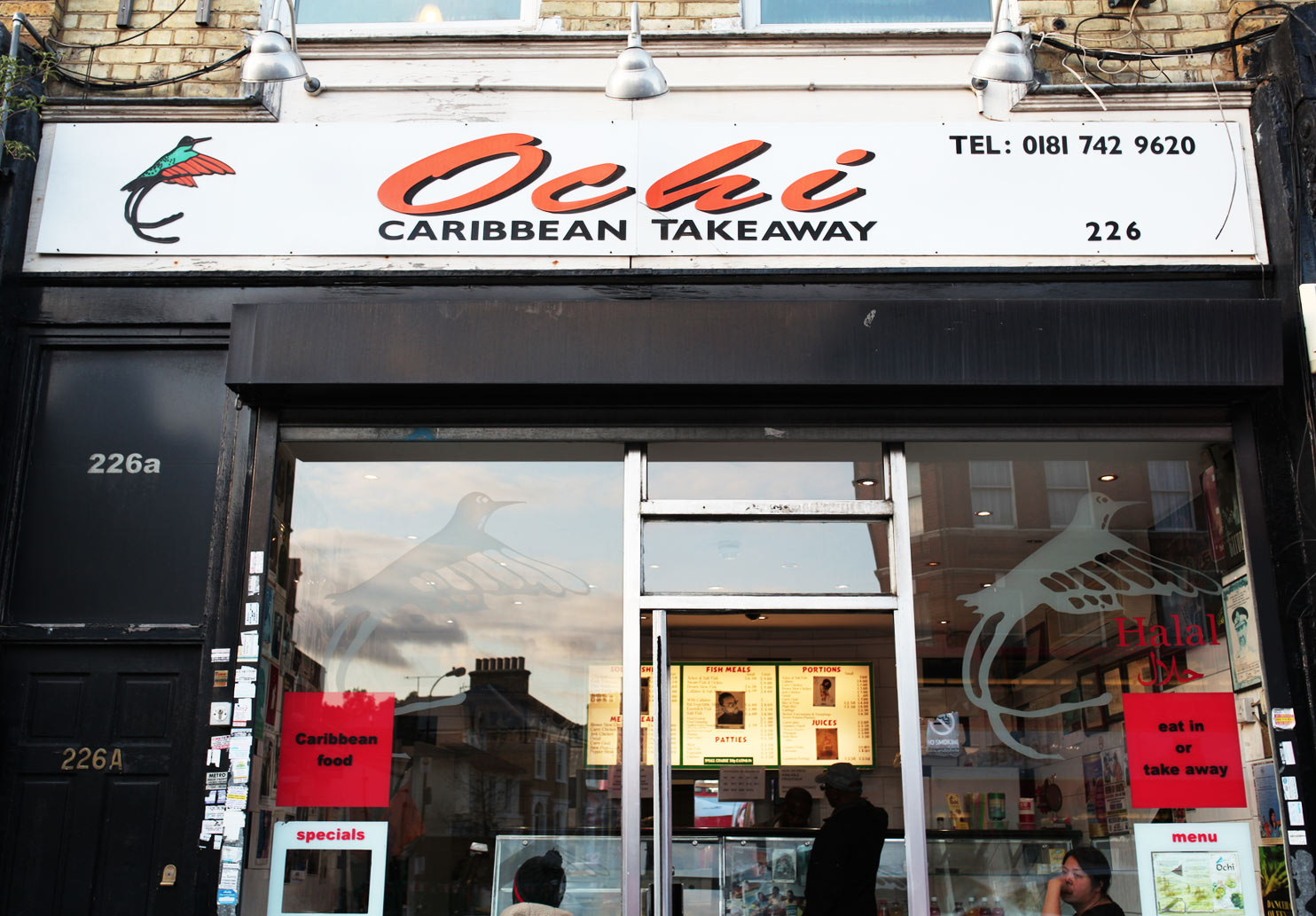
People’s Choice (Jamaican), Clapton, East London: The slow, considered process of the jerking here is something to behold. Smoked early in the morning before they open, the charcoal smoke fuses with the herby marinade for some magic. Any other suggestions are a lottery, as everyday the menu changes based on what’s available locally, but unless you have any allergies or abstinences you can’t go wrong.
The Wright Jerk Centre (Jamaican), Wembley/Harrow, North West London: There are only two seats at The Wright Jerk Centre, the rest of the space here is allocated to wall-long jerk drums constantly churning out streams of jerked meats throughout the day. There’s dozens and dozens of combos here depending on your tastes, but for those just getting started look no further than the soft and sweet coco bread filled jerk sandwich ladled with bbq jerk sauce.
Keeping the spirit alive will give people optimism
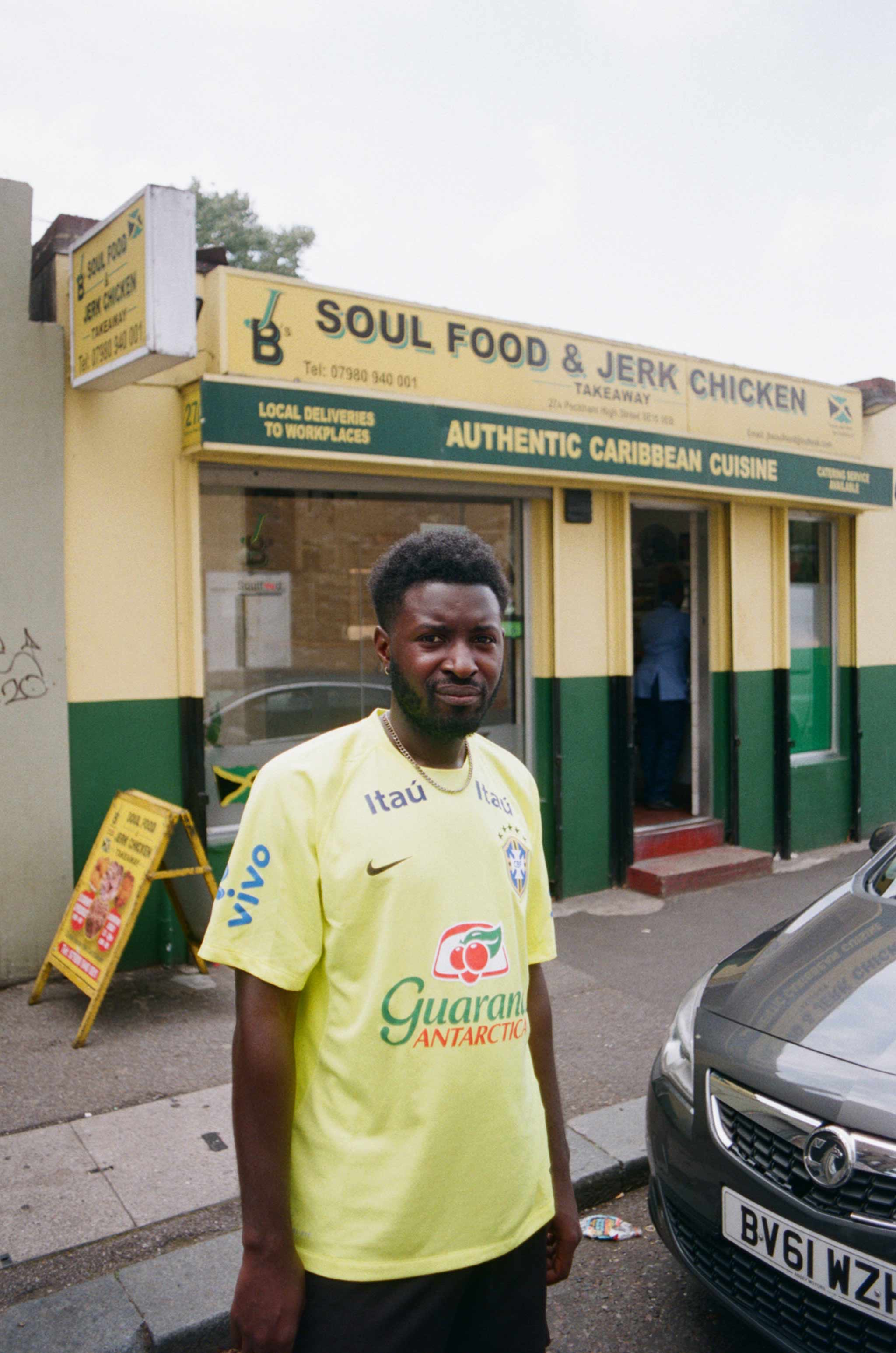
Do you see any silver linings to Notting Hill Carnival being forced to move online for this year’s event?
Yes. Just keeping the name and spirit alive will give people life and the optimism that things may return to normal eventually. Already so much of our lives have had to move online, so I don’t see why just for this year the same can’t be done for Carnival. (I’m sure the enemy-of-progress West Londoners who hate Carnival see a silver lining for sure too!)
Read More: Documenting Notting Hill Carnival With Ian Watts.



